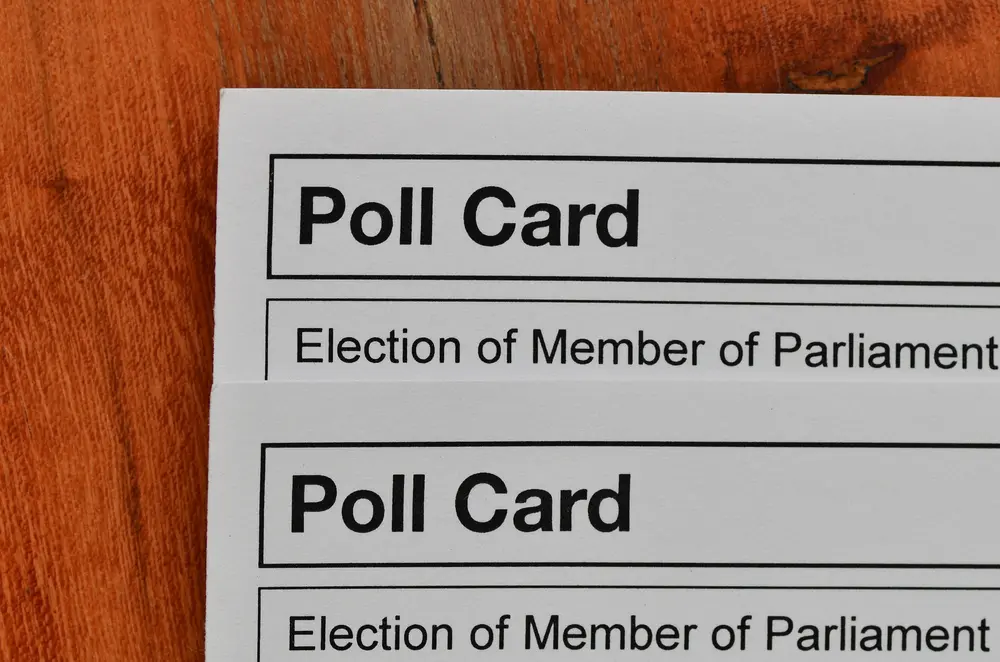Who To Inform When Moving Into a Care Home

Estimated Reading Time: 8 minutes
From your local council to your GP, there are lots of people and organisations you must inform when moving into a care home. Below, we’ve listed who you should tell.
We’ve also explained other things to consider when moving into a care home and how to tell if your loved one needs care.
If you're starting your search for care, we can help you find a local care home.
Kickstart your care search
Discover the best care homes in your area through Lottie.
In this article:
- Who you need to inform when moving into a care home
- Other things to consider when moving into a care home
- How to tell if your loved one needs care
- Use Lottie to find a care home near you
Who You Need To Inform When Moving Into a Care Home
Family and friends
You should first make family members and friends aware of your move into a care home. Not only is this important information for them to have, but it’ll also allow them to support you through this process wherever possible, both before and after you move in.
Local council
Your local council is one of the first places you should tell about your move into a care home.
They’ll give you a financial assessment to determine whether you qualify for financial assistance with paying for care, or if you’ll need to pay for your own care. This assessment works out the total value of your income, savings and assets.
They need to have your correct address as exact funding amounts differ from area to area, and the right council needs to pay for your care if you qualify for funding support.
Electoral register
Your electoral register details need to be updated. You could be fined if you don’t register at your new address.
You can use the Register to Vote service on GOV.UK to change your address. You’ll be asked for your National Insurance number, but you can still register without this if you don’t have it.
Updating your address through the electoral register will allow you to vote in your new constituency (or continue voting in your old one if you haven’t moved out of your current constituency).

Benefits (if relevant)
Any benefits you receive could be affected when moving into a care home. You should contact the relevant benefits department for any benefits you receive and inform them about the move.
For example, you can continue receiving Attendance Allowance in a care home if you pay for your own care, but not if you receive local authority funding.
Here’s who to contact for different benefits:
- The Disability Service Centre for any disability benefits such as Attendance Allowance or Personal Independence Payment
- HMRC for State Pension or any tax credits
- The Pension Service for Pension Credit
- Your local council for housing benefit
- Go through your online account for Universal Credit
- Jobcentre Plus for any other benefits
GP and any other medical professionals
Tell your GP and any other medical professionals who provide you with some form of care. This could include dentists, opticians or any other healthcare professionals.
Your GP may then share your medical details with the home, allowing them to provide you with the best and most accurate care possible.
If you’re moving out of proximity of these services, you’ll likely need to switch to new ones. The care home may be able to recommend new services for you to use. Click here to find a GP near you.
We’re here to help you find the right care home for you or your loved one. You can request a free list of care homes from our care experts, who will then share homes matching your budget, location and type of care needed. You can also search for a care home through our easy-to-use directory.
Utility companies
Any utility companies you use need to know of your move into care. This includes gas, electricity and water companies. When moving into a care home, you’ll likely be cancelling your current contracts.
Insurance companies
Going into a care home may alter your insurance claims, so any insurance provider you’re registered with must be aware of your move.
Examples of insurance companies to tell include:
- Life insurance
- Health insurance
- Home insurance
- Contents insurance
Banks or building societies
Any banks or building societies you’re registered with need to know about the change of address when you go into a care home. If moving into the home affects any of your payment agreements, you should tell them about these as well.
You should also inform other financial service agencies, such as credit card and personal pension providers.
The DVLA or DVA
If you have a driving licence, you need to tell the DVLA or DVA that you’ve moved into a care home and provide the address of this home.
The DVLA is for people living in England, Wales and Scotland, while the DVA is for Northern Ireland.
The Post Office
Telling the Post Office about your new address will ensure any post is sent to the care home, rather than your previous residence.
You’ll want to set up a Royal Mail redirection. This can be done online using their redirection service. You can also do this at a local post office. Click here to find Royal Mail services near you.
Any other service providers or subscriptions
This could include:
- Internet, mobile and TV providers
- TV Licensing
- Magazines or newspapers you have delivered
- Anybody who regularly visits your home to do work, such as a gardener or cleaner
- E-commerce websites such as Amazon (you can update your address on their website)
Other Things To Consider When Moving Into a Care Home
Visiting the home in advance will help you or your loved one get more comfortable in these new surroundings before the move-in day. Some care homes even allow you to move in temporarily, before deciding whether or not you want to move in full-time. This is known as tactical respite
Are you able to take your own furniture and other personal belongings? If so, you should decide on what to take in advance. Taking personal possessions will help make your new care home room feel more welcoming and homely

There are essentials you’ll need to bring as well, such as clothes and toiletries
If you have a pet, you’ll want to find out if you can bring your furry friend. Some care homes allow certain pets to live with residents. All Lottie care homes state whether pets are allowed or not
Getting support from family and friends will make moving in much easier. Not only can they help you with the physical process of moving in, but they’ll also be there to provide emotional support and warm words of encouragement as you take this next step
How To Tell If Your Loved One Needs Care
The following are signs that your loved one may require care, whether this is in a purpose-built care home or through care at home:
They’ve become less physically active - Watch out for changes to your loved one’s physical ability. They may become less mobile or more prone to falling
They find it tough to look after themselves and their personal hygiene - Personal care is really important. If your loved one is finding it tough to manage their own personal care - such as washing, bathing, using the toilet and getting dressed and undressed - care in a residential home could be needed
Daily household chores also represent a challenge - When you become less mobile, completing daily tasks such as washing, cleaning and cooking become more complex. Living in a care home will remove this responsibility from your loved one
Their eating habits have changed - Eating less and sudden weight loss are both signs of physical or mental conditions that require additional care and support
They have specialist medical care needs - If your loved one has specialist care needs that you and other family members or friends are unable to properly look after, a nursing home may be the best option. Your loved one may have several types of medication, so taking the correct doses at the proper times is becoming more challenging
They’ve said that they need care and support - Your loved one may have directly said that they need extra help on a daily basis. In this case, you should explore the options together, whether this is support in a care home, in their own home or somewhere else
Use Lottie To Find a Care Home Near You
You can use Lottie for free to find a care home near you.
We list care homes throughout the UK, including residential care homes, specialist nursing care homes and dementia care homes.
Our care experts have vetted every home we list, so you and your loved ones can feel confident about receiving an amazing standard of care and support.
Lottie matches care seekers with the best care homes for their needs. You can request a free list of homes from our care experts, who will share homes that match your budget, location and type of care needed. You can also search for a care home through our easy-to-use directory.
Frequently Asked Questions
What needs doing when moving into a care home?
Along with informing people and organisations such as your GP and local council, some of the other things that need doing when moving into a care home include:
- Finding out whether you can put furniture and other belongings in your new room, then deciding on what to take
- Visiting the home before the move-in date to get familiar and comfortable with your new surroundings



